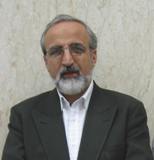Ministry of Health and Medical Education
Ministry of Health and Medical Education (MOHME) is a governmental body in charge of overseeing the public health, medical education, and healthcare services in various countries. The primary goal of the ministry is to ensure the health and well-being of the population through the formulation and implementation of policies, standards, and programs related to health and medical education. This article focuses on the structure, functions, and responsibilities of the Ministry of Health and Medical Education, highlighting its critical role in maintaining and improving public health standards.
Overview[edit | edit source]
The Ministry of Health and Medical Education is responsible for the planning, supervision, and regulation of the healthcare system within a country. It works in collaboration with various government agencies, non-governmental organizations (NGOs), and the private sector to deliver a wide range of health services. These services include preventive medicine, primary healthcare, hospital care, mental health services, emergency services, and public health campaigns.
Functions and Responsibilities[edit | edit source]
The core functions and responsibilities of the Ministry of Health and Medical Education include:
- Policy Formulation: Developing health policies and plans that seek to improve the health status of the population.
- Regulation and Supervision: Regulating healthcare providers and facilities to ensure compliance with national health standards.
- Health Promotion: Implementing programs and initiatives aimed at promoting healthy lifestyles and preventing diseases.
- Medical Education: Overseeing the education and training of healthcare professionals, including doctors, nurses, and pharmacists.
- Research and Development: Supporting health research and applying its findings to improve health services and outcomes.
- Resource Allocation: Managing the allocation of financial and human resources within the healthcare sector.
Challenges[edit | edit source]
The Ministry of Health and Medical Education faces numerous challenges, including managing the spread of infectious diseases, addressing the rise of non-communicable diseases (NCDs), ensuring equitable access to healthcare services, and adapting to the changing healthcare needs of the population. Additionally, the ministry must navigate the complexities of healthcare financing and the integration of technology into healthcare delivery.
Global Perspective[edit | edit source]
Globally, Ministries of Health and Medical Education play a pivotal role in the World Health Organization (WHO) and other international health initiatives. They collaborate on cross-border health issues, such as pandemic preparedness, vaccine distribution, and the control of communicable diseases. These collaborations help to strengthen global health security and promote international health standards.
Conclusion[edit | edit source]
The Ministry of Health and Medical Education is a vital institution that plays a central role in ensuring the health and well-being of the population. Through its wide-ranging functions and responsibilities, the ministry seeks to provide comprehensive and accessible healthcare services, promote public health, and foster the development of a skilled healthcare workforce. Despite facing numerous challenges, the ministry's efforts are crucial for achieving national health objectives and contributing to global health initiatives.
Search WikiMD
Ad.Tired of being Overweight? Try W8MD's physician weight loss program.
Semaglutide (Ozempic / Wegovy and Tirzepatide (Mounjaro / Zepbound) available.
Advertise on WikiMD
|
WikiMD's Wellness Encyclopedia |
| Let Food Be Thy Medicine Medicine Thy Food - Hippocrates |
Translate this page: - East Asian
中文,
日本,
한국어,
South Asian
हिन्दी,
தமிழ்,
తెలుగు,
Urdu,
ಕನ್ನಡ,
Southeast Asian
Indonesian,
Vietnamese,
Thai,
မြန်မာဘာသာ,
বাংলা
European
español,
Deutsch,
français,
Greek,
português do Brasil,
polski,
română,
русский,
Nederlands,
norsk,
svenska,
suomi,
Italian
Middle Eastern & African
عربى,
Turkish,
Persian,
Hebrew,
Afrikaans,
isiZulu,
Kiswahili,
Other
Bulgarian,
Hungarian,
Czech,
Swedish,
മലയാളം,
मराठी,
ਪੰਜਾਬੀ,
ગુજરાતી,
Portuguese,
Ukrainian
Medical Disclaimer: WikiMD is not a substitute for professional medical advice. The information on WikiMD is provided as an information resource only, may be incorrect, outdated or misleading, and is not to be used or relied on for any diagnostic or treatment purposes. Please consult your health care provider before making any healthcare decisions or for guidance about a specific medical condition. WikiMD expressly disclaims responsibility, and shall have no liability, for any damages, loss, injury, or liability whatsoever suffered as a result of your reliance on the information contained in this site. By visiting this site you agree to the foregoing terms and conditions, which may from time to time be changed or supplemented by WikiMD. If you do not agree to the foregoing terms and conditions, you should not enter or use this site. See full disclaimer.
Credits:Most images are courtesy of Wikimedia commons, and templates, categories Wikipedia, licensed under CC BY SA or similar.
Contributors: Prab R. Tumpati, MD






